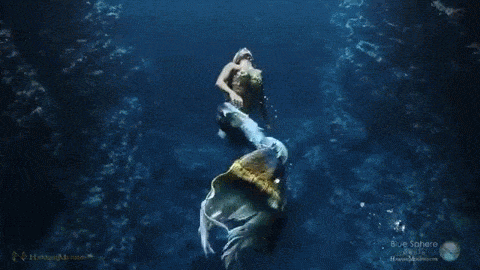“Once you’ve held a book and really loved it, you forever remember the feel of it, its specific weight, the way it sits in your hand.”
Every once in a while, I'll come across a book, get a few chapters into it, and realize that this was exactly the book that I was meant to read in the time I chose to pick it up. This is one of those books. Erika Swyler crafts her words so precisely, so delicately, it feels as though she is caring after a centuries-old tome, much like that of her protagonist.
 |
| I'm almost positive I was a fortune teller in a past life. |
“Something is very wrong. What began as a passing fascination with the book has turned into something darker.”
On the modern day side of the tale, we have Simon. He and his younger sister Enola are orphans and while Simon spends his days filling grant requests and curating the whaling history collection of his library, Enola is off reading tarot cards for a traveling carnival with her cephalopod-inked boyfriend. Simon himself is an interesting character. We don't see many hints into his personality outright, and to some readers he may come across as rather boring. I took a shine to him and his introverted, introspective self. Hmm, an introverted librarian living an a coastal town, why would I relate to that? (Hint: because it's me.) His relationship with his fiery younger sister is incredibly real and Enola is so interesting that I did find myself half-wishing that the book was from her perspective as the coincidental deaths in their family follow the women. But Simon as a protagonist is a quiet one, which adds a low-key energy as he begins to uncover the past and mysteries from his family's history.
“We carry our families like anchors, rooting us in storms, making sure we never drift from where and who we are. We carry our families within us the way we carry our breath underwater, keeping us afloat, keeping us alive.”
One of the many interesting traits of Simon's family is that they are swimmers. Not "doing a few laps at The Y" swimmers; Simon himself can hold his breath upwards of ten minutes at a time, something his mother taught him. There's so much about symbolism and beautiful imagery that I want to get into about what that means for the family and their fates but I just cannot do that without breaking my "no spoilers" clause. If you'd like to go into it further, feel free to message me here or on Goodreads!
Now, the ending of this book doesn't have a huge shock reveal, at least not to me. It felt rather obvious that the direction it was taking was leading to it, but for others this may be a surprise. Others may be disappointed. But I feel that the point of the story follows the idiom "it's the journey that's important, not the destination" and family reminds us that we're more than just ourselves. And love is just as wild, unpredictable, and all encompassing as the ocean's waves.
"Because there are things you do for people you’ve known your whole life. You let them save you, you put them in your books, and you let each other begin again, clean.”



No comments:
Post a Comment